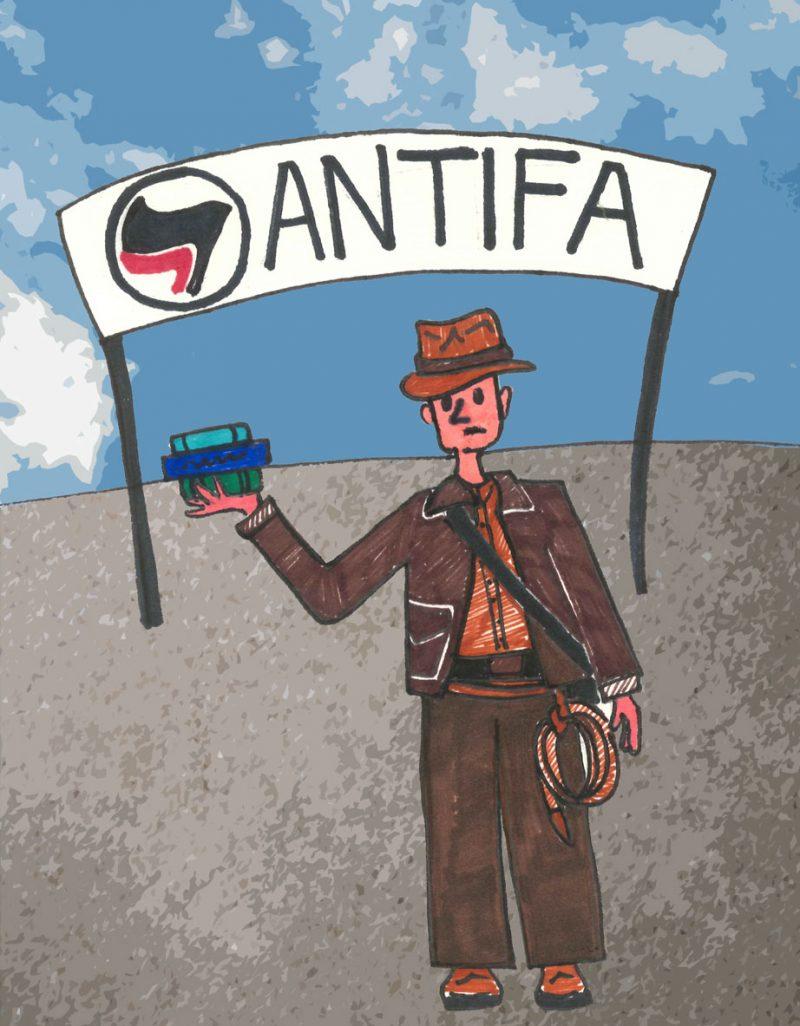For a few hours on Nov. 16, rumors swirled around that Trinity’s department of sociology and anthropology had endorsed the Campus Anti-fascist Network (CAN).
CAN is a multi-campus organization of left-wing students, faculty and staff whose mission is to stop the fascist movement through direct action. CAN is a part of the Antifa movement, which is currently under petition on the White House petitioning system “We the People” to be officially listed as a terrorist group. President Trump has not responded to the petition, which has over 360,000 signatures, well over the 100,000 signature threshold for official review.
An article published by Campus Reform, an online news organization that focuses on exposing university misconduct, revealed what was ultimately found to be an error in the online list of official endorsers of the CAN. The “Department of Sociology, Trinity University” wrongly appeared amid a list of left-wing extremist organizations and university departments from across the country.
Trinity does not have a department of sociology. Instead, sociology is grouped with anthropology under David Spener, chair of the department of sociology and anthropology.
“We did not, as a department, endorse Campus Anti-fascist Network, nor have we ever endorsed, to my knowledge, any other political organization. That would require a department discussion and vote, which has never occurred,” Spener wrote in an email to Campus Reform. “That said, I do not believe that there is anyone in our department who supports fascists or fascism, in the United States or elsewhere.”
The article was originally written by Nikita Vladimirov, who graduated from Trinity in December 2015, and published before Trinity officials responded. The article was updated later hours after publication to reveal that the endorsing department was actually located at Trinity College in Hartford, Connecticut. However, the correction has still not been made on the CAN website, which now lists “Department of Sociology, Trinity University Hartford.”
Vladimirov reached out to several sociology professors, but received no comment.
“Campus Reform made multiple attempts to contact every school listed on CAN’s list of endorsers, including Trinity University’s department of sociology,” Vladimirov wrote in an email. “After more than a week of silence, Campus Reform made another request for comment but also received no response from the department.”
After no word from Trinity officials, Vladimirov reached out to Manfred Wendt, a senior political science major, who was quoted in Vladimirov’s article calling for an investigation of the department before the mistake was revealed. (Wendt is a columnist for the Trinitonian.)
“I was informed of the situation by a reporter from Campus Reform. They were doing a piece on university departments that have endorsed different branches of the ‘anti-fascist’ groups,” Wendt wrote in an email interview. “The department was asked to comment twice and didn’t respond each time. Because of that, the article was moved forward with the information. My opinion is that they should have replied to the request for comment.”
Spener commented on why the department ignored Vladimirov’s emails.
“If we ignored [Vladimirov], it is because we did not know who he was or recognize the name of the publication. Speaking for myself, I am typically hesitant to discuss matters of public concern with individuals and publications I am not familiar with,” Spener wrote.
In an email to Vladimirov following the correction of his article, Spener chastised Vladimirov’s reporting.
“Let me suggest that, in the future, you follow up inquiries with a phone call to the department chair, if it concerns a matter of department policies and activities or to the specific faculty member whose public statements or intellectual pursuits interest you,” Spener wrote to Vladimirov.
Vladimirov defended why he went on with the article.
“Given the fact that Trinity University department of sociology was listed as an official endorser of CAN, we had an obligation to accurately reflect that in the article. Simply assuming that Trinity’s name appeared on the list by mistake would have been a breach of journalistic ethics,” Vladimirov wrote.
Vladimirov also pointed out a benefit of his article.
“Without our report, Trinity University’s endorsement of this radical organization would likely still be up on CAN’s website to this day,” Vladimirov wrote.







